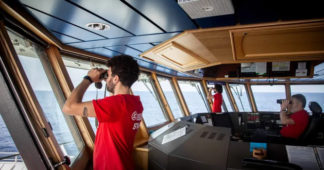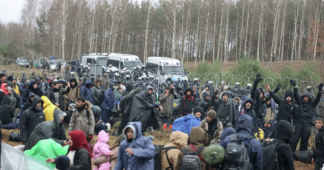On February 21, the Valdai Club hosted an expert discussion dedicated to international migration via the Mediterranean Sea.
The main corridor used by migrants travelling from Africa and the Middle East to Europe passes through the Mediterranean Sea. Most often, people leave their homes due to low living standards and security threats. Now, during the escalation of the Palestinian-Israeli conflict, migration is intensifying. The International Organisation for Migration (IOM) says nearly 100 people have died or gone missing in the Central and Eastern Mediterranean since the start of 2024. According to the IOM, this is double last year’s rate (for the same period), which was one of the deadliest for migrants attempting to cross the sea in order to reach Europe.
Despite the number of victims, migration via the Mediterranean Sea is unlikely to be stopped due to persisting inequality in socio-economic development between the global North and the global South, particularly between Europe and Africa.
In order to reduce migration, European countries are implementing programmes under the “help at home” slogan and are financing the construction of migrant camps in the Arab countries of the Mediterranean. How effective are these measures? What is crime like along the entire route, from Africa and the Middle East to Europe? How are migrants’ rights respected in European countries? Participants in the discussion tried to answer these and other questions.
Speakers:
- Roberta Alonzi, Lecturer at the RUDN University
- Dimitris Konstantakopoulos, former Adviser to Greek Prime Minister Andreas Papandreou and former member of the SYRIZA secretariat
- Hasan Unal, Professor, Baskent University (Ankara)
- Nathalia Zaiser, Chair of the Board, Africa Business Initiative Union
Moderator:
- Oleg Barabanov, Programme director of the Valdai Discussion Club
Working languages: Russian, English.
We remind our readers that publication of articles on our site does not mean that we agree with what is written. Our policy is to publish anything which we consider of interest, so as to assist our readers in forming their opinions. Sometimes we even publish articles with which we totally disagree, since we believe it is important for our readers to be informed on as wide a spectrum of views as possible.











